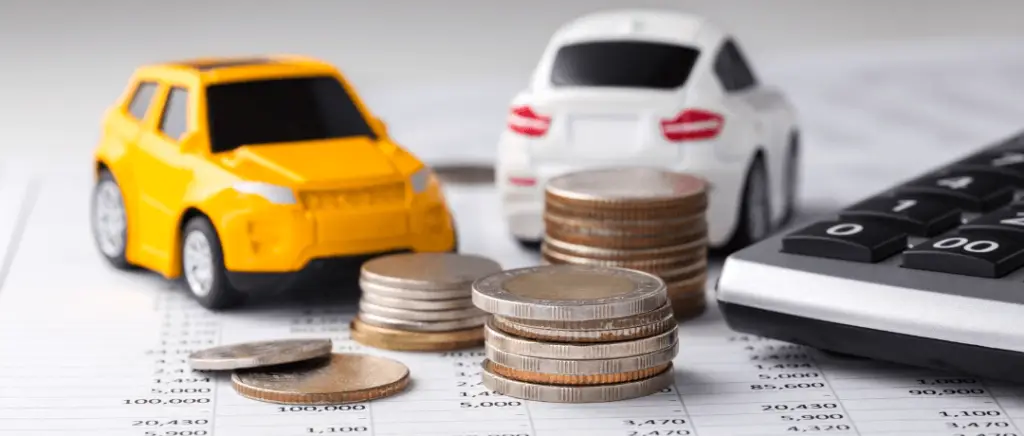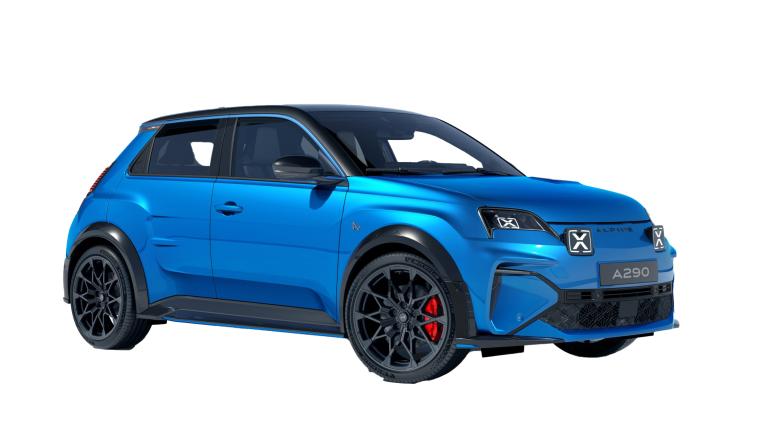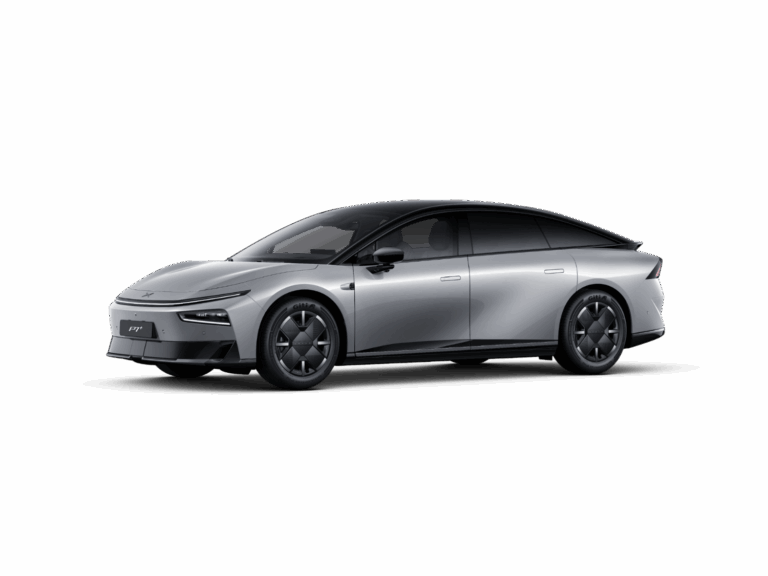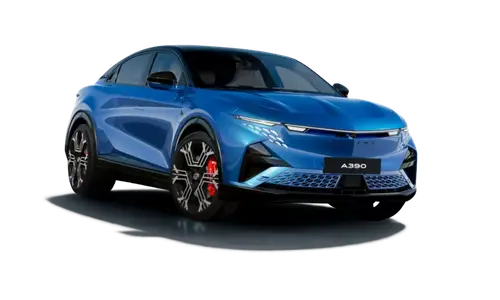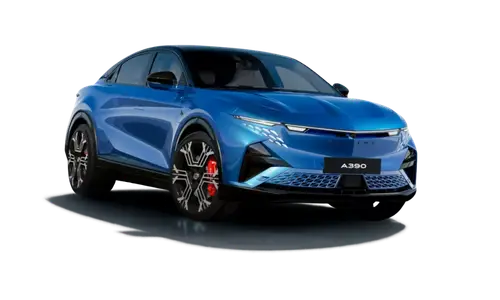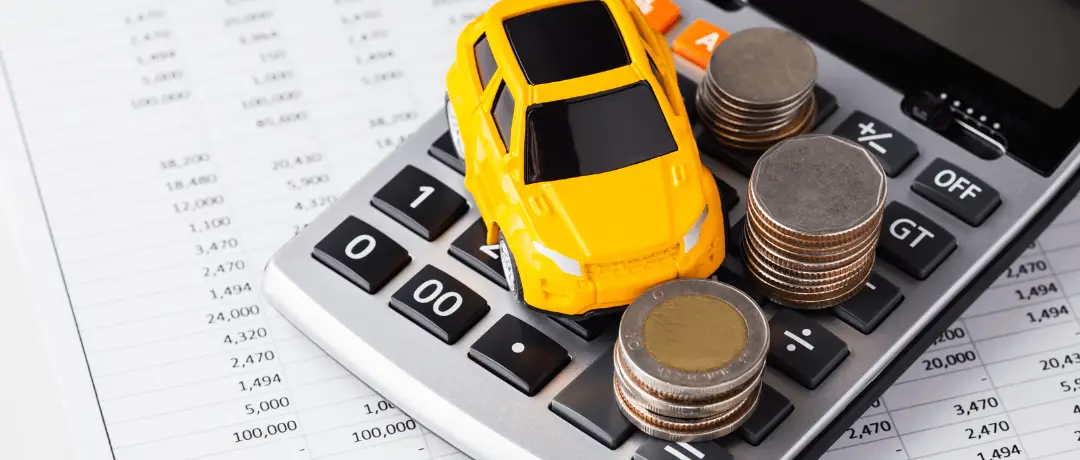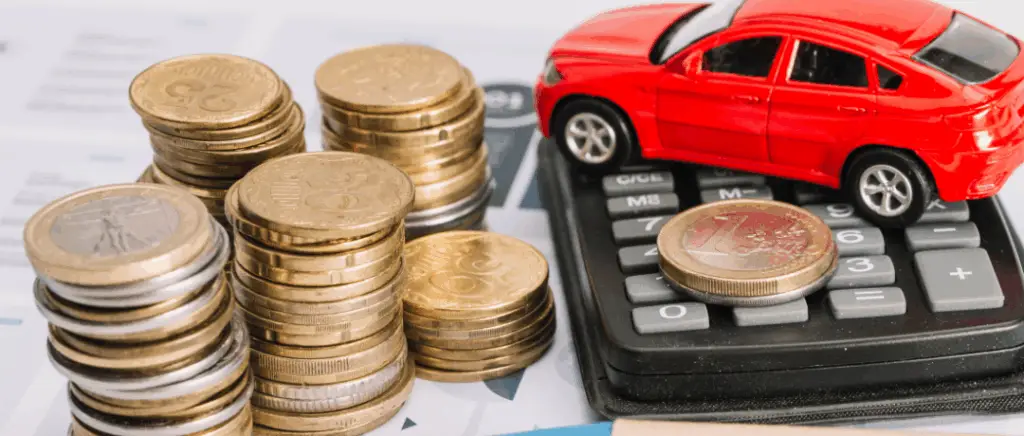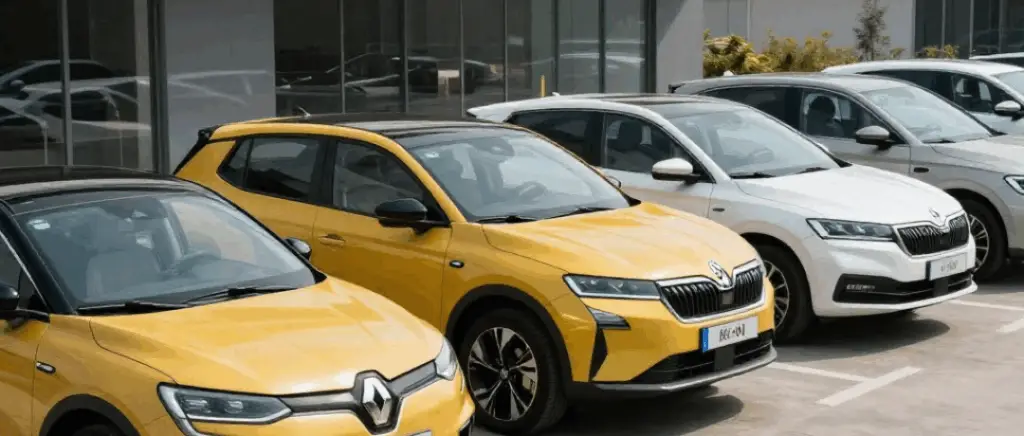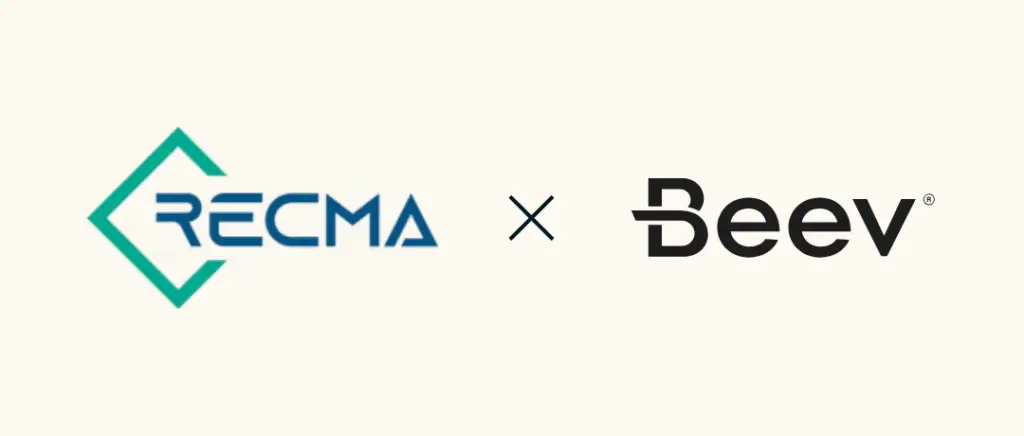Ecological bonus: what does it mean?
Le environmental bonus is a major public incentive that will continue until 2023, also benefiting professionals. Its aim is to promote the purchase and use of vehicles with low CO2 emissions.
This initiative is part of France's overall strategy for 2030, which aims to establish a 100 % circular and French electrical industry, with the ambitious objective of producing 2 million vehicles in France by 2030.
This is a public policy measure designed to encourage the use of more environmentally-friendly vehicles.
The ecological bonus is granted under certain conditions, in particular :
- The vehicle must be new or used.
- The vehicle must have CO2 emissions below a certain threshold.
- The vehicle must be classified in a certain category.
What are the changes to the eco-bonus for 2023?
The amount of the environmental bonus varies according to the type of vehicle and the household's tax income.
For private cars, the amount of the eco-bonus is set at 27 % of the acquisition cost (including VAT), up to a limit of €5,000 for private individuals and €3,000 for professionals.
For light commercial vehicles, the amount of the eco-bonus is set at 40 % of the acquisition cost including VAT, up to a limit of €7,000 for private individuals and €4,000 for professionals. For heavy goods vehicles, the amount of the eco-bonus is set at 40 % of the acquisition cost including tax, up to a limit of €50,000.
The ecological bonus is paid when the vehicle is purchased or leased. It can be combined with the conversion bonus, another form of financial assistance granted by the government for the purchase of an electric or plug-in hybrid vehicle.
The ecological bonus is an important measure for the energy transition, helping to reduce greenhouse gas emissions from the transport sector, which is the biggest emitter of greenhouse gases in France. In 2022, the ecological bonus supported the purchase or lease of almost 1 million low CO2 emission vehicles.
The new ecological bonus criteria
From 10 October 2023, the eco-bonus for new electric cars will be conditional on achieving a minimum environmental score. This will be calculated by taking into account the environmental impact of the vehicle's manufacture.
Car manufacturers must submit a detailed application to the French Environment and Energy Management Agency (ADEME) for each model and version of car, even if the same model can have different battery configurations.
Ademe will then assess the environmental impact of the cars, taking the following factors into account:
- The materials used (steel, aluminium, ferrous metals, etc.) in the manufacture of the vehicle.
- CO2 emissions linked to the energy used for intermediate transformations and vehicle assembly.
- The CO2 emissions associated with the production of battery.
- The mode of transport used to get the car from the assembly site to the distribution site in France, taking into account different means of transport such as boat, train and lorry.
Le decree also specifies that the presence of recycled and bio-sourced materials in the vehicle, as well as the reparability of the battery, can be taken into account when calculating the environmental score.
NB: It is important to note that the decree of 20 September 2023 specifies that the previous eligibility criteria will continue to apply to new cars that have been ordered or for which the leasing contract has been signed before 15 December 2023 inclusive, provided that they are invoiced or the first rental payment is made no later than 15 March 2024.
How do I qualify for the environmental bonus?
To qualify for the environmental bonus, you must meet the following conditions:
- Be of legal age and resident in France.
- Buy a new vehicle or one leased for at least 2 years.
- The vehicle must be registered in France for the first time.
- The vehicle must have CO2 emissions of 50 g/km or less for electric, plug-in hybrid or hydrogen-powered cars.
- The price of the vehicle must not exceed €47,000.
If you meet these conditions, you can take the following steps to qualify for the environmental bonus:
- Apply for the eco-bonus from the Agence de services et de paiement (ASP). You can do this online at the ASP website or by filling in the form below. CERFA 13621 form.
- Provide the supporting documents requested. The supporting documents you need to provide depend on your situation and the type of vehicle you have purchased.
- Sign a declaration of honour. In this declaration, you undertake not to resell the vehicle within 6 months of purchase or before it has been driven 6,000 km.
If your application is accepted, you will receive the amount of the eco-bonus by bank transfer within a period of 3 months.
Applications for the ecological bonus must be submitted within 6 months of the vehicle's invoice date, and the amount of the ecological bonus varies according to the type of vehicle and its price.
Conversion bonus: what does it mean?
La conversion premium provides considerable financial support for companies considering the purchase or lease of an electric car, whether new or used.
This initiative offers a substantial reduction on the purchase cost of an environmentally-friendly vehicle, encouraging its widespread adoption on the market.
The government supports professionals in their transition to greener vehicles. Companies that purchase an electric or plug-in hybrid vehicle can benefit from aid of up to 3,000 euros.
The individuals are also eligible for financial assistance from the government. The amount of this aid, which amounts to 27 % of the acquisition cost including tax, is capped at 6,000 euros.
A significant financial incentive, designed to encourage the transition to environmentally-friendly vehicles, while offering considerable economic benefits to companies committed to this ecological approach.
Amounts of the conversion premium for professionals and private individuals :
Professionals:
Assistance of up to €1,100 is available for professionals interested in purchasing motorised 2 or 3-wheelers, as well as electric quadricycles.
However, this aid is capped at the purchase cost of the vehicle and its electrical power. It is crucial to note that the vehicle must be new, and the maximum amount of aid, including the ecological bonus, is capped at €2,000. If these professionals live or work in a low-emission zone (ZFE) and their local authority has granted them assistance for the purchase or hire of a clean vehicleHowever, if they are not insured, they can benefit from an additional premium, limited to €1,000.
Individuals:
For private individuals interested in purchasing plug-in hybrid cars, vans (autonomy ≤ 50 km) and thermal vehicles with a reference tax income per unit of less than or equal to €14,089, specific amounts of aid are available.
Provided they meet certain conditions, such as a reference tax income per unit ≤ €6,300, a journey of more than 12,000 km per year and a home-to-work distance of more than 30 km, these individuals may qualify for a higher amount of assistance. A summary table is available to help you determine the exact amount to which you are entitled, depending on your situation.
| Type de véhicule | Critères | Ménages très modestes et ménages "gros rouleurs" | Ménages très modestes (revenu fiscal de référence par part inférieur ou égal à 13 489 € | Autres ménages |
|---|---|---|---|---|
|
Passenger cars eligible for purchase (to benefit from the conversion premium)
|
Electric cars and plug-in hybrid vehicle (with a range > 50 km)
|
If conditions met: €6,000 otherwise: €2,500
|
2 500 €
|
2 500 €
|
|
Passenger cars eligible for purchase (to benefit from the conversion premium)
|
Plug-in hybrid car (with a range ≤ 50 km)
|
If conditions met: €3,000
If not: €1,500
|
1 500 €
|
1 500 €
|
|
Passenger cars eligible for purchase (to benefit from the conversion premium)
|
Internal combustion car
|
If conditions met: €3,000
If not: €1,500
|
|
|
|
Vans eligible for purchase (to benefit from the conversion premium)
|
Electric van and plug-in hybrid vehicle (with a range > 50 km)
|
Class 1: up to €5,000
Class 2: up to €7,000
Class 3: up to €9,000
|
Class 1: up to €5,000
Class 2: up to €7,000
Class 3: up to €9,000
|
Class 1: up to €5,000
Class 2: up to €7,000
Class 3: up to €9,000
|
|
Vans eligible for purchase (to benefit from the conversion premium)
|
Plug-in hybrid van (with a range ≤ 50 km)
|
If conditions met: €3,000
If not: €1,500
|
1 500 €
|
1 500 €
|
|
Vans eligible for purchase (to benefit from the conversion premium)
|
Thermal pick-up truck
|
If conditions met: €3,000
If not: €1,500
|
|
|
For private customers:
Private car :
- New or used vehicle with Crit'Air 1 classification
- Range under 50 km
- CO2 emissions less than or equal to 127 g/km (137 g/km if the vehicle is more than 6 months old)
- Price less than or equal to €50,000
| Type de véhicule | Critères | Ménages très modestes et ménages "gros rouleurs" | Ménages très modestes (revenu fiscal de référence par part inférieur ou égal à 13 489 € | Autres ménages |
|---|---|---|---|---|
|
|
Passenger car
or plug-in hybrid
new or used
|
|||
|
|
Range in excess of 50 km
|
5000 (up to 80% of the acquisition cost)
|
2500 €
|
2500 €
|
|
|
Price less than or equal to €60,000
|
|
|
|
|
Private car
|
|
|
|
|
|
|
New or used vehicle with Crit'Air 1 classification
|
|
|
|
|
|
Range under 50 km
|
3000 (up to 80% of the acquisition cost)
|
1500 €
|
0
|
|
|
CO2 emissions less than or equal to 127 g/km if the vehicle is more than 6 months old)
|
|
|
|
|
|
Price less than or equal to €50,000
|
|
|
|
Light commercial vehicles :
- New or used vehicle with Crit'Air 1 classification
- Range under 50 km
- CO2 emissions less than or equal to 127 g/km (137 g/km if the vehicle is more than 6 months old)
- Price less than or equal to €50,000
| Type de véhicule | Critères | Ménages très modestes et ménages "gros rouleurs" | Ménages très modestes (revenu fiscal de référence par part inférieur ou égal à 13 489 € | Autres ménages | ||
|---|---|---|---|---|---|---|
|
|
Passenger car
or plug-in hybrid
new or used
|
40% of the acquisition cost, up to a maximum of :
|
||||
|
|
Range in excess of 50 km
|
5,000 for class 1 vehicles (reference mass less than or equal to 1,305 kg).
|
||||
|
|
Price less than or equal to €60,000
|
7,000 for class 2 vehicles (between 1,306 and 1,760 kg)
|
|
|
||
|
Light commercial vehicle
|
|
9,000 for class 3 vehicles (weighing more than 1,760 kg)
|
|
|
|
|
|
|
New or used vehicle with Crit'Air 1 classification
|
|
|
|
||
|
|
Range under 50 km
|
3000 (up to 80% of the acquisition cost)
|
1500 €
|
0
|
||
|
|
CO2 emissions less than or equal to 127 g/km if the vehicle is more than 6 months old)
|
|
|
|
||
|
|
Price less than or equal to €50,000
|
|
|
|
For professionals :
Private car :
- New or used electric or plug-in hybrid vehicle
- Range in excess of 50 km
- Price less than or equal to €60,000
| Type de véhicule | Critères | Montant de l'aide |
|---|---|---|
|
|
Passenger car
or plug-in hybrid
new or used
|
|
|
Private car
|
Range in excess of 50 km
|
2500 €
|
|
|
Price less than or equal to €60,000
|
Light commercial vehicles :
- New or used electric or plug-in hybrid vehicle
- Range in excess of 50 km
| Type de véhicule | Critères | Montant de l'aide |
|---|---|---|
|
|
Passenger car
or plug-in hybrid
new or used
|
40% of the acquisition cost, up to a maximum of :
|
|
Light commercial vehicle
|
|
5,000 for class 1 vehicles (reference mass less than or equal to 1,305 kg)
|
|
|
|
7,000 for class 2 vehicles (between 1,306 and 1,760 kg)
|
|
|
Range in excess of 50 km
|
9,000 for class 3 vehicles (weighing more than 1,760 kg)
|
It is important to note that electric vehicles must have a CO2 level of 20 g/km or less, while plug-in hybrids must have a CO2 level of 50 g/km or less.
For example, a company buying a new electric van worth €60,000 could receive an environmental bonus of €3,000. If the company owns an old diesel commercial vehicle that is more than 10 years old, it is also eligible for a conversion bonus of €7,000. All in all, the company can benefit from a total of €10,000 in financial assistance, bringing the purchase cost of the vehicle down to €50,000.
Conversion bonuses and incentives: what you need to know before choosing between leasing and full service leasing
Before choosing between lease with purchase option (LOA) and the long-term rental (LLD) to benefit from conversion bonuses and incentives, it's essential to understand the differences between these two vehicle financing options. Here's what you need to know:
- Leasing with an option to buy (LOA) :
- The LOA allows you to lease a vehicle for a fixed period, generally from 2 to 5 years.
- You pay monthly instalments for the duration of the lease.
- At the end of the contract, you have the option of buying the vehicle by paying the residual amount set out in the contract.
- You can benefit from conversion bonuses and incentives if the leased vehicle meets the eligibility criteria, as you are considered to be the main user of the vehicle.
- Long-term leasing :
- Full service leasing is a vehicle leasing contract for a longer period, generally from 2 to 5 years or more.
- You pay monthly instalments for the duration of the contract, which generally cover maintenance, insurance and other vehicle-related services.
- At the end of the contract, you simply return the vehicle to the hire company.
- You can also benefit from conversion bonuses and incentives if the leased vehicle meets the eligibility criteria. However, as the lessee, you must ensure that the lessor applies the financial incentives to the monthly instalments or the total cost of the lease.
Before making your decision, make sure you :
- Check the eligibility criteria for conversion bonuses and incentives for both financing options.
- Compare total costs, including monthly repayments, maintenance, insurance and other associated costs.
- Read the terms of the contract carefully, in particular the conditions for returning the vehicle at the end of the contract, in the case of a leasing contract.
- Take into account your financial situation, your needs in terms of annual mileage and your long-term intentions (owning or simply using the vehicle).
It is always advisable to consult a financial adviser or motoring professional to help you make the best decision for your particular circumstances. If you would like more information, please do not hesitate to contact us. The beevers will be happy to help.
Conclusion
The ecological bonus and the conversion premium represent invaluable opportunities to support your transition to an environmentally-friendly vehicle.
In 2023, the ecological bonus will be strengthened with stricter criteria to promote even greener vehicles. We can help you take all the necessary steps to benefit from these important financial advantages.
For more information, we've put together a guide to this topic to explore the different aspects in depth:
Read our article about :
If you would like to find out more about our offers or if you have any questions about the process for obtaining the ecological bonus and the conversion premium, please do not hesitate to contact us.
Beev is here to guide you towards a cleaner, more economical automotive future. Make the right choice today and contribute to a healthier environment tomorrow.
